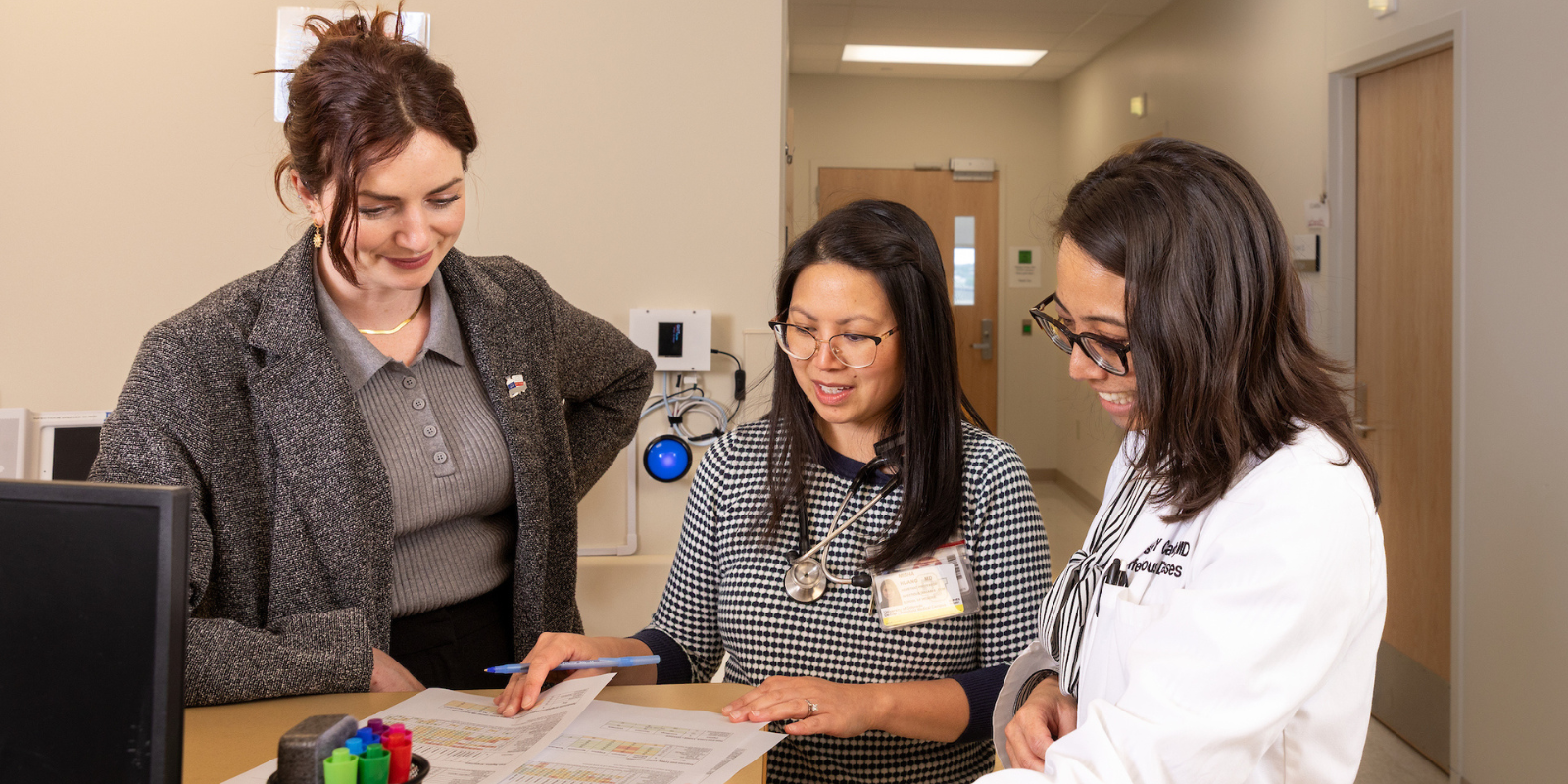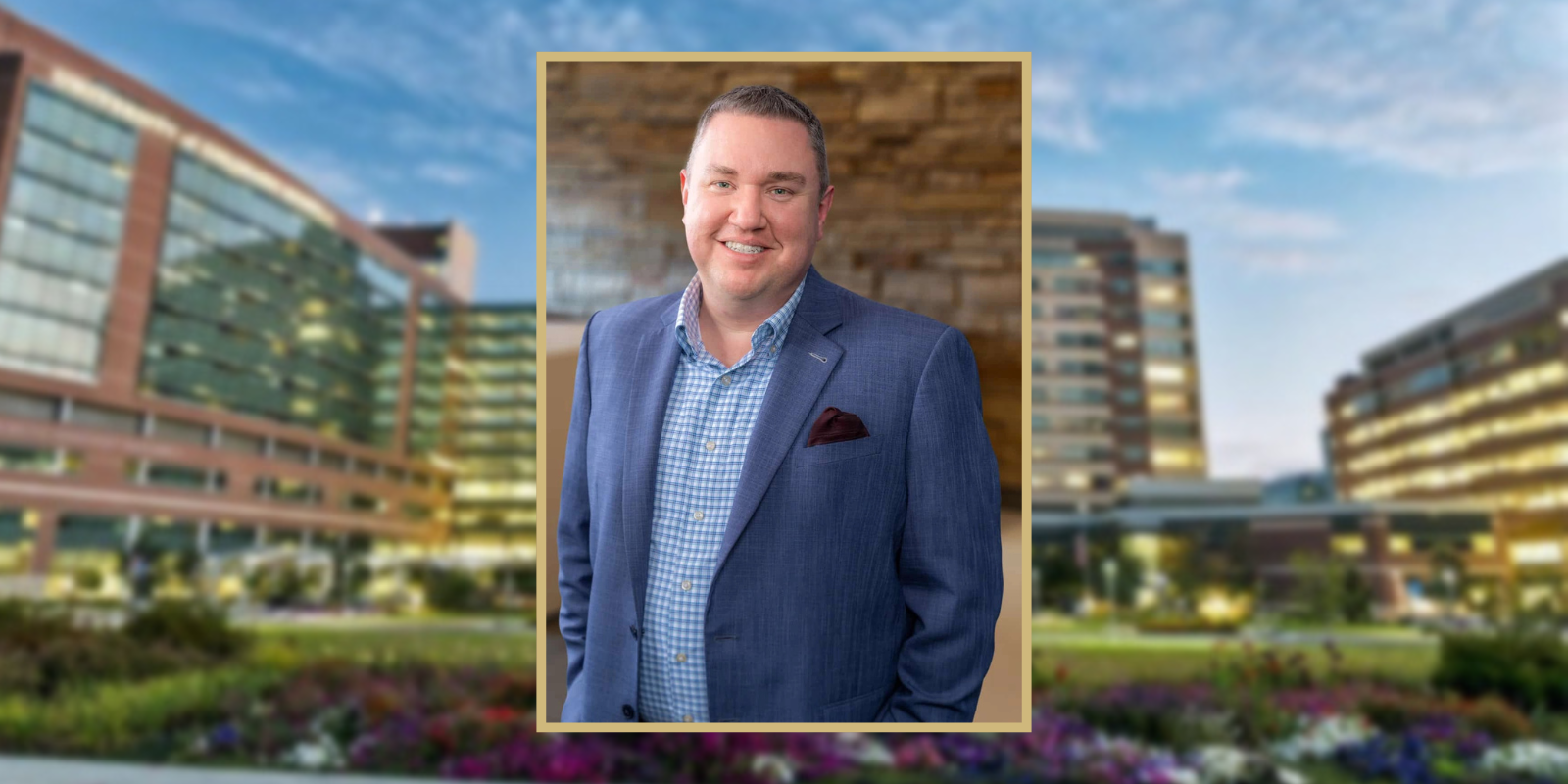In your experience, what are some key reasons a patient changes to a different primary care provider?
Most of the people I see in our clinics who are seeking a new primary care provider are doing it for one of a few key reasons. One is an insurance change that puts their old provider out of network. Or it’s a move, so either their former provider is no longer available because they’re out of state, or it’s no longer convenient for them to see a provider because they now live farther from their practice. Or their provider is retiring.
Sometimes people feel like they don’t connect with their doctor. There might be a communication issue, or there are times where people feel it’s just not a good match, which I think is fairly rare.
Are there reasons why a person should think twice about changing their provider?
The advantage of having continuity with a provider is that usually they know you pretty well – you’ve got a history and a shared experience with them. They’ve accompanied you through your medical journey. When you’re starting from scratch, it takes time to get to that point. Your medical history happened somewhere else.
Also, your provider may give you advice about changing behaviors, like smoking. Sometimes it’s good to have somebody who pushes you to do things that you’re not comfortable doing. If you pick a new provider who won’t push you on those things, you may not be doing yourself any favors.
It’s also important to keep in mind that we have a real shortage of primary care providers. You may reach out to different practices or individuals and find out the practice isn’t taking new patients. So that could be a challenge.
→ Champions For Their Patients: 21 Inducted Into CU Department of Medicine’s New Clinical Excellence Society
What are key ways that someone can find a new primary care provider?
There is no one best way to find a new primary care provider. A recommendation from your current doctor can be helpful as well as word-of-mouth recommendations from friends.
You should take into account what is convenient for you and not choose a practice that is too hard to get to. Certainly, you should make sure any practice you are looking at is in your insurance network.
If the person you want to see is not taking new patients, it can help to have someone who knows that provider make a direct appeal on your behalf. Sometimes a provider who is not formally taking new patients may make an exception if someone – a patient in their practice or another provider – makes a request. That’s when a handoff from your old provider can come in handy – especially if they know the person you would like to switch to.
Does a primary care provider have to be a physician?
Not necessarily. When people are thinking about a primary care provider, they don’t always think about an advanced practice provider – a physician assistant or a nurse practitioner. For people who are looking mostly for preventive care, or who have straightforward medical problems, an advanced practice provider can be a great option.
On the other hand, if people have more complex medical problems or multiple overlapping illnesses, then I think you want someone prepared to deal with that, such as a general internal medicine physician.
What are some important things to know about a new provider?
If you have multiple doctors, it’s important to find out about a primary care provider’s relationships with subspecialists, because that affects how easy it is for your doctors to communicate with one another.
For example, if someone has multiple sclerosis or heart failure and sees subspecialists, it helps for that whole care team to be in the same system. If somebody sees me as well as subspecialists who are part of UCHealth, the communication between us is very seamless. A cardiologist will send me a note saying, ‘I saw Bill today and made the following medication changes,’ and we’re looking at the same medication list on the shared electronic record, and I can see exactly what changes were made. But if a patient’s subspecialists are in another location, that information doesn't always flow freely, and I might make some decisions without being fully cognizant of what happened elsewhere unless that patient tells me so.
It’s also good to know what happens at a new practice if you get acutely ill. Can you be seen in a day or two, and is there someone else who can see you if your main provider is away? At my practice, if I go on vacation, there’s somebody covering my inbox, and people who can see my patients if I’m not able to. Most practices probably have some arrangement like this, but not all of them.
And often a larger practice will have resources for patients that a smaller practice might not have. Here we have pharmacists who back us up, we have dieticians, we have behavioral health providers, and that opens up easy access to different resources that might otherwise be harder to get. Our pharmacist could call you back the same day if there’s a question about medications, for example.
→ First Holder of Endowed Chair Seeks to Help ‘Define the Ideal Patient Experience’
From the physician’s standpoint, what are some things you typically do to get up to speed on a new patient?
Typically, my process is, first and foremost, to identify what’s happening right now. Are there symptoms that if we don’t address today, we’re missing something important?
Then I go in detail through a patient’s past history – what are the significant conditions they are currently being treated for or have been treated for in the past? What are things they’ve been hospitalized for? What is their family history?
And then I try to get a develop a schedule of preventive measures. What vaccines have they had? Have they been screened for different types of cancers? From that we can start a plan and a schedule to address needs.
Should a new patient tell their new primary care provider about their medical history, or is the transfer of medical records enough?
It’s very useful to bring in that information. Sometimes I’ll have new patients come in, and I'll start to ask them about their history, and they say, ‘Isn’t that all in the record?’ But when a patient has had 20 years of medical history, it may come to you as hundreds of notes, and it can be really hard to go through the record and abstract what’s important. It’s needles in a haystack.
A patient can help you move through that quickly by telling you about their history. That way, if someone tells me they have a diagnosis of heart failure, I know what to look for in the record and pull out different pieces of information that are important to them.
What should you do about your prescription renewals if you’re changing providers?
It’s a safe practice to make sure you have enough of a supply of your prescriptions to last you until you establish yourself with a new provider.
If it’s renewal of things like blood pressure or diabetes medications, for the most part your new provider will just want to know what you’re on and there won’t be much concern about refilling those. But if someone is on controlled substances – narcotics or certain anxiety medications, for example – the handoff is more critical. In general, the new provider will want to hear from the old provider that this person doesn’t have a use disorder.




.png)
